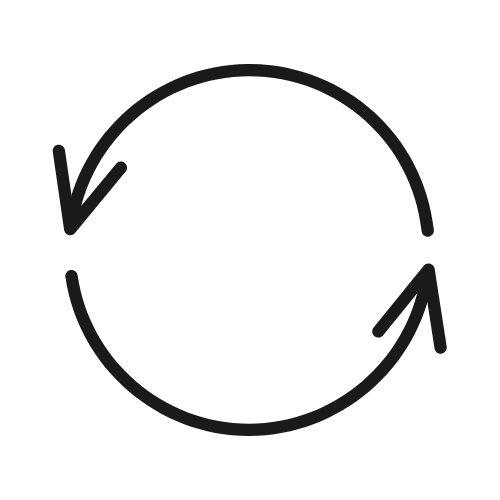Screen-free play with TUMLE™
Around the world, families are increasingly concerned about the effects of screen time on young children. Research from the World Health Organization (WHO) recommends limiting screen time for children under five years old, citing risks to motor development, sleep quality, and attention span. At TUMLE, we believe the best way to support healthy growth is through movement, sensory exploration, and open play.
That is why we created TUMLE STEPPING STONES™ – a modular play system designed to help children train balance, develop coordination, and engage in creative, screen-free activities that support both physical and emotional development.

The problem with passive play
In recent years, screen time has become a standard activity for many toddlers and preschoolers. While digital tools can offer convenience, they often replace the kind of active play that builds fundamental motor skills. A 2023 review, published in the International Journal of Contemporary Pediatrics, showed that excessive screen time negatively affects attention, memory, and motor development in children.
TUMLE STEPPING STONES™ offers a practical alternative. With soft, stable surfaces and flexible configurations, the stones invite children to move, jump, crawl, and climb – activities that directly support gross motor development and body control.
Train falling safely
Falling is a natural part of learning to move. But in many modern homes, children do not get enough opportunities to practice safe risk-taking. TUMLE STEPPING STONES™ is designed to help children learn to fall safely, build resilience, and improve reaction time.
Each stone is made from durable, child-safe materials that absorb impact while providing enough challenge to stimulate balance and coordination. By navigating uneven surfaces and changing layouts, children learn to adjust their movements, anticipate shifts, and recover from falls – all essential skills for physical confidence.
Stimulate creative play
Unlike toys with fixed functions or digital instructions, TUMLE STEPPING STONES™ encourages open play. Children can arrange the stones into obstacle courses, color-coded paths, or imaginative landscapes. There are no rules – only possibilities.
This type of play supports cognitive flexibility, problem-solving, and independent thinking. Danish kindergartens and play researchers consistently highlight the value of open play in fostering creativity and emotional regulation. A good example of this approach is described in Nurture with Yally's exploration of Danish play-based learning.
Parents often report that their children play longer and more independently when given simple, adaptable tools. The stones become part of a story, a challenge, or a game – changing with each day and each child's imagination.
Strengthen family connection
Play is also a social experience. TUMLE STEPPING STONES™ is designed to be used together – by siblings, parents, and caregivers. Whether guiding a toddler through a balance path or cheering on a preschooler's obstacle course, adults become active participants in the child's development.
Screen-free play routines often lead to stronger family bonds. Instead of negotiating screen limits, families create shared rituals – morning movement, weekend challenges, or quiet sensory play before bedtime. These moments foster connection, communication, and emotional security.

Practical tips to reduce screen time
If you want to reduce screen time at home, here are a few evidence-based strategies:
- Create a dedicated play area with movement-friendly toys like TUMLE STEPPING STONES™
- Establish screen-free zones (e.g., during meals, in bedrooms, or before school)
- Rotate toys weekly to maintain novelty and engagement
- Encourage outdoor play and sensory activities
- Be a role model for screen-free behavior as a parent or caregiver
Designed in Denmark, reliable throughout Europe
TUMLE STEPPING STONES™ is rooted in Danish design principles – minimalist, functional, and child-centered. Every detail is crafted to support safe movement, creative play, and long-lasting durability.
Movement is not just physical – it is developmental. Let's build stronger bodies, smarter minds, and better habits – one step at a time.



